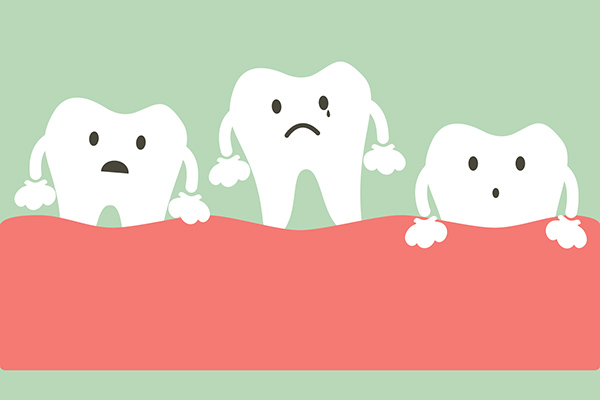 You must visit your general dentist once you notice a loose tooth in your mouth. This is a common problem among those with poor dental hygiene practices, heavy tartar, and periodontitis. Going to your dentist will give you access to various effective treatments to help correct your loose tooth. If you want to know what these treatments are, here are some answers from a general dentist.
You must visit your general dentist once you notice a loose tooth in your mouth. This is a common problem among those with poor dental hygiene practices, heavy tartar, and periodontitis. Going to your dentist will give you access to various effective treatments to help correct your loose tooth. If you want to know what these treatments are, here are some answers from a general dentist.
Keeping blood glucose levels within normal range
Patients who have diabetes must regulate their blood glucose levels. A general dentist is aware of how prone these patients are to gingivitis, thrush, and periodontitis. Tooth loosening is common among them. Diabetes alone is enough to make teeth loosen or fall out. The patient must avoid drinking alcohol and smoking. These activities weaken the immune system and deteriorate dental health.
Undergoing a flap procedure
Severe periodontitis damages the jawbones of the patient. The jawbones support the teeth. Weak bones mean weak dental support. This then leads to loosening teeth. A general dentist will recommend a flap procedure for patients with severe periodontitis.
In this procedure, the dentist will make incisions in the patient’s gums to pull back the infected gum tissue. Then, the dentist will perform root planing and scaling. The dentist will stitch back the gums. Good dental care after the procedure will make the gums healthy again. This will rejuvenate the support system of the teeth.
Getting a bite or occlusal adjustment
Tooth loosening can result from primary trauma from teeth grinding or even a bite trauma. This damages what is left of the tooth’s periodontal disease. For this situation, the general dentist will recommend a bite or occlusal adjustment. This treatment reshapes the biting or chewing surface of the tooth. The dentist will do this by removing some of the enamel. This lowers the pressure on the tooth and lets the tooth heal.
Having a splinting procedure
A general dentist will recommend a splinting procedure if the tooth is so loose. A splint will join together or splint the tooth to neighboring strong teeth. This will resemble a picket fence. Splinting the tooth will distribute the bite pressure or force to this new group of teeth.
Temporary splinting can happen with extra-coronal and intra-coronal splints. Extra-coronal splints involve using a splinting material to attach a group of teeth by bonding the enamel to the neighboring teeth. This makes the tooth stronger. An intra-coronal splint uses a small channel into the teeth to form a metal splint. Cementing or bonding stabilizes the splint in place.
Getting a bone grafting procedure
Bone loss is another cause of tooth loosening. A general dentist can recommend a bone grafting procedure. This allows the bones in the jaw to regenerate. This procedure can save the teeth of patients with periodontal disease. Bone grafting helps regenerate the bone around the loose tooth, strengthening its support.
Your general dentist can recommend procedures to save your loose tooth
Natural teeth are valuable. Your general dentist will do everything possible to save your natural, loose tooth. The mentioned procedures can strengthen and reestablish the support of your loose teeth. Combining these treatments with proper oral hygiene and regular visits to your general dentist can rejuvenate your loose tooth.
Request an appointment or call Smiles By Julia at 954-493-6556 for an appointment in our Fort Lauderdale office.
Related Posts
Tooth pain is one of the most common reasons people visit a general dentistry clinic, where they may receive a filling or other type of repair for a damaged or decayed tooth. However, in some cases, the tooth in question may be too far gone, and extraction is necessary. While this may be distressing for…
In general dentistry, practitioners offer preventative, restorative, and cosmetic services. General dentists help patients maintain good oral health by preventing disease and decay. For example, when individuals visit their general dentists' office for tooth decay, the dentist can diagnose, clean the decay, and fill the tooth. General dentists understand how oral health affects an individual's…
In general dentistry, the dentist examines, diagnoses, and treats a patient's teeth for various conditions and damage. According to the ADA, about 80% of all dentists choose general dentistry for their practice. Your first point of contact for dental conditions, malformations, or decay is your general dentist.In general dentistry, dentists always attempt to save a…
